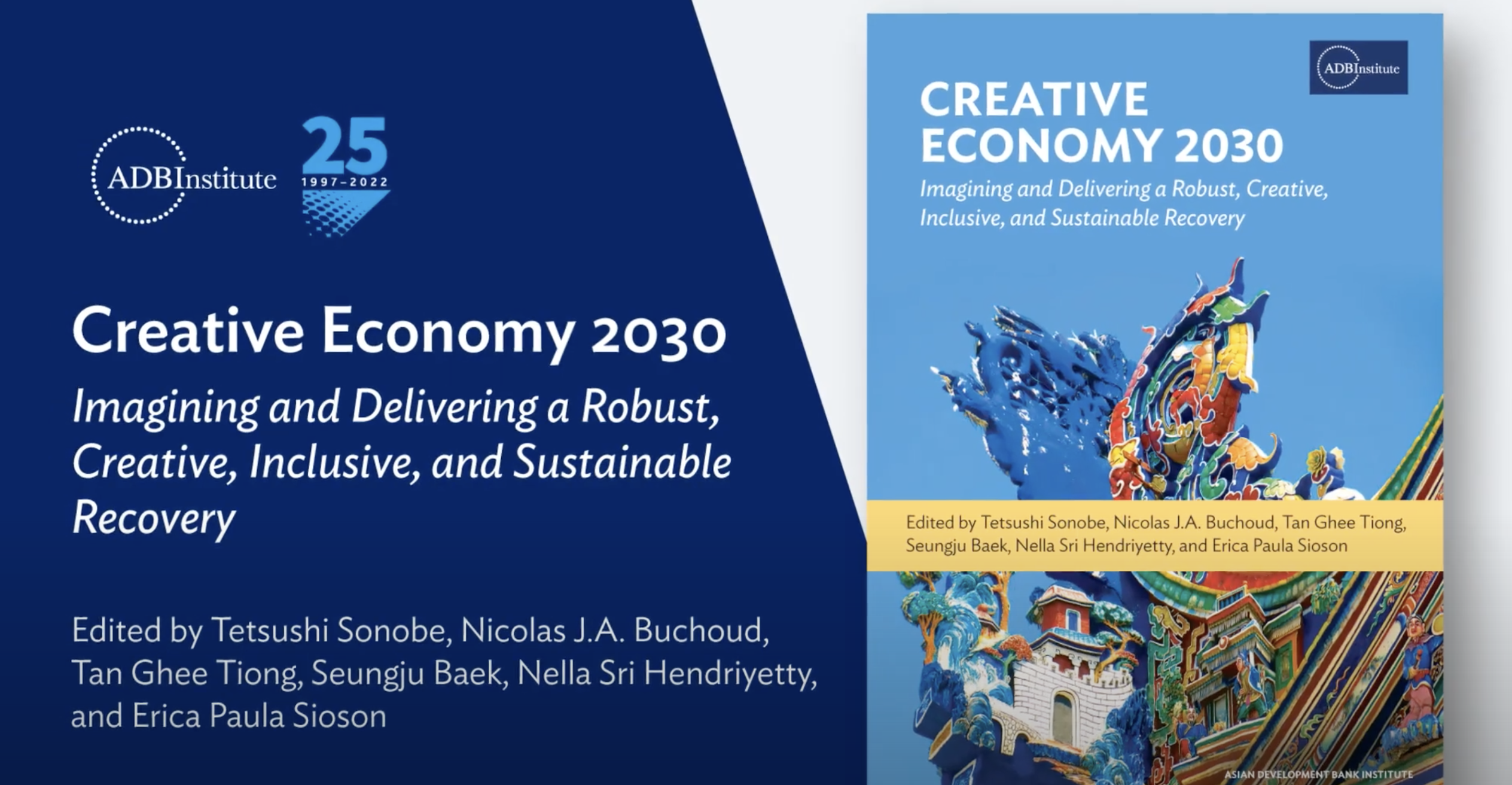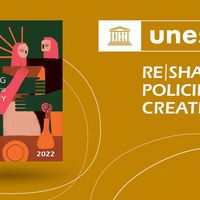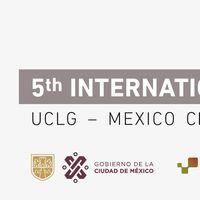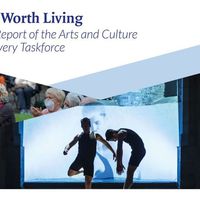Creative Economy 2030 report on Asia and the Pacific

The Asian Development Bank Institute has published “Creative Economy 2030: Imagining and Delivering a Robust, Creative, Inclusive, and Sustainable Recovery,” a free report that examines the role of the creative economy in delivering a robust and inclusive post-pandemic recovery in Asia and the Pacific.
The report explores how the post-COVID-19 revival of the creative economy could advance the realisation of the SDGs, setting the stage for possible action during Indonesia’s G20 presidency in 2022.
Before the COVID-19 crisis, the creative economy was on pace to account for 10% of global gross domestic product by 2030. However, micro, small, and medium-sized enterprises (MSMEs) and the informal workers that drive the creative economy have been hard hit by the pandemic. The revival of the creative economy is critical for realising an inclusive recovery that boosts MSMEs and employment for women, youth, and other vulnerable groups in Asia and the Pacific’s rural and urban areas.
Creative Economy 2030 features peer-reviewed, independent insights that together provide the Group of 20 (G20) and global partners a timely roadmap for revitalising the creative economy, facilitated by the digital marketplace.
It incorporates cross-disciplinary institutional and community perspectives and original case studies, with a special focus on Indonesia as a global creative economy powerhouse, G20 president in 2022, and Association of Southeast Asian Nations (ASEAN) Secretariat chair in 2023.
Read the full report here.
The report is the product of collaboration between the Asian Development Bank Institute (ADBI), The Association of Southeast Asian Nations (ASEAN), Institute for Economic and Social Research, Faculty of Economics and Business, University of Indonesia (LPEM FEB UI), Indian Council for Research on International Economic Relations (ICRIER), and British Council.
Similar content
posted on
08 Feb 2022
posted on
31 Oct 2022
posted on
21 Sep 2020
deadline
22 Apr 2022
posted on
03 Dec 2020
deadline
15 Jun 2022






